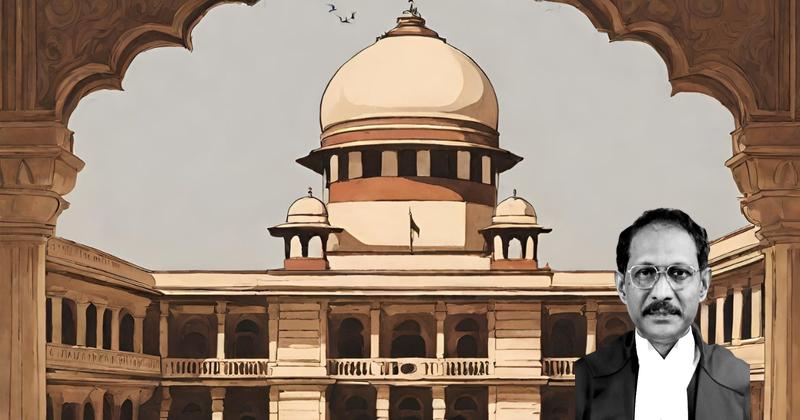The Court’s legal analysis in a recent case delves into the interpretation of ‘Corporate Guarantor’ under the Insolvency and Bankruptcy Code (IBC). The judgment emphasizes the co-extensive liability of guarantors with principal borrowers, elucidating the applicability of the Corporate Insolvency Resolution Process (CIRP) to corporate entities providing guarantees. This significant clarification ensures robust debt recovery mechanisms and upholds the efficacy of insolvency resolution processes within the corporate framework.
Facts
- The Appellant, who is the promoter, shareholder, and suspended/discharged director of Maharaja Theme Parks and Resorts, filed an appeal against the order admitting the application for CIRP.
- The Financial Creditor had advanced credit facilities to three entities with Maharaja Theme Parks and Resorts standing as a guarantor for the loans.
- The borrowers failed to repay the debts, making Maharaja Theme Parks and Resorts liable as guarantor to repay the loans.
- Maharaja Theme Parks and Resorts objected to the jurisdiction of NCLT to entertain the petition under Section 7 of the IBC, stating that they did not owe any financial debt to the Financial Creditor.
- Despite the objections, the Adjudicating Authority admitted the petition under Section 7 and initiated the CIRP against Maharaja Theme Parks and Resorts.
Also Read: Judicial Promotion Dispute Resolved
Arguments
- The Appellant argues that Maharaja Theme Parks and Resorts does not fall under the definition of ‘Corporate Guarantor’ as per Section 5(5A) of the IBC.
- Referring to the definition of ‘Corporate Person’ in Section 3(7) of the IBC, it is highlighted that Maharaja Theme Parks and Resorts had not guaranteed any loan given to a corporate entity.
- The argument is based on the interpretation that a Corporate Guarantor is the surety in a contract of guarantee to a Corporate Debtor, which does not apply in this case as the borrowers are not Corporate Debtors.
- Initiation of CIRP under Section 7 of the IBC against a Corporate entity who has given a guarantee to secure the dues of a non-corporate entity is discussed, with emphasis on the guarantor becoming the Corporate Debtor in case of default by the borrower.
Also Read: Ex post facto Environmental Clearance in Bio-Medical Waste Case
Analysis
- In Laxmi Pat Surana (supra), the Court held that the liability of the guarantor is co-extensive with that of the Principal Borrower.
- The Financial Creditor can proceed against the guarantor without first suing the Principal Borrower.
- The Corporate Guarantor can be subject to CIRP without proceeding against the principal borrower.
- Section 7 of the IBC permits the initiation of CIRP against a corporate debtor, whether the principal borrower or a corporate person providing a guarantee.
- The Code provides for reorganization and insolvency resolution of corporate persons to maximize asset value and balance stakeholder interests.
- The term ‘financial creditor’ is defined in Section 5(7) of the Insolvency and Bankruptcy Code.
- It includes a person to whom a financial debt is owed.
- The definition also encompasses a person to whom such debt has been legally assigned or transferred.
- Debt with interest disbursed for the time value of money includes liability for guarantee or indemnity.
- The guarantor’s liability is equal to that of the principal borrower.
- Section 7 empowers NCLT to handle insolvency of corporate debtor and guarantor in the same Tribunal.
- A financial debt includes liabilities from guarantees offered by a corporate person.
- Default by the borrower triggers the guarantor’s obligation as a debtor or corporate debtor.
- The lender can proceed against both the borrower and guarantor jointly and severally in case of default.
- The Code does not exclude proceedings against a corporate person for guarantee to a non-corporate borrower.
- The legislature did not amend provisions to limit liability arising from guarantees given by corporate persons.
- The expression ‘corporate debtor’ applies to the Code as a whole, including guarantors.
- Section 5(5-A) defines ‘corporate guarantor’ within the context of CIRP initiation.
- The guarantor’s obligation to pay is triggered coextensively with the borrower’s default.
- The guarantor transforms into a debtor or corporate debtor if the borrower defaults in payment.
- There is no basis to challenge the findings of both the Adjudicating Authority (NCLT) and the Appellate Authority (NCLAT)
- The concurrent findings of both authorities remain uncontested
- The decision to not interfere with the findings is upheld
Also Read: Land Dispute Legal Analysis
Decision
- The appeal is dismissed
Case Title: K. PARAMASIVAM Vs. THE KARUR VYSYA BANK LTD. (2022 INSC 926)
Case Number: C.A. No.-009286 / 2019



